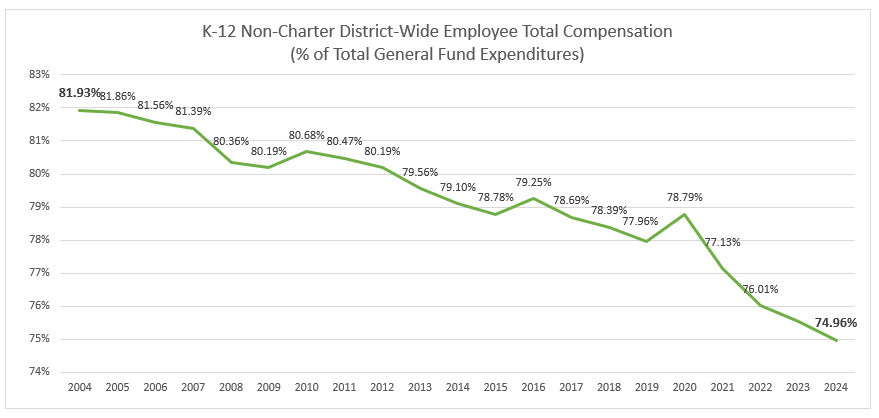Educators fight to win for students amid state budget battle
By Brenda Ortega
MEA Voice Editor
Despite uncertainty from lack of a state budget, educators in a number of Michigan school districts spent their spring and summer securing solid wins in contracts that underscore the importance of union expertise, cohesion and leadership.
Latest from Lansing
The state House and Senate still have failed to agree on a spending plan for 2025-26 with the Oct. 1 start of the fiscal year fast approaching. On Monday Gov. Gretchen Whitmer warned a partial government shutdown could become unavoidable if a deal isn’t reached soon.
“I’m continuing to have conversations with the Legislature; I think that we can get it done, but we don’t have a lot of time left,” Whitmer said.
The next day the Republican-controlled House led by Speaker Matt Hall (R-Richland) tore a page from the Trump administration playbook, passing a late budget proposal that trims more than $5 billion in services and eliminates thousands of jobs compared to plans from Whitmer and Senate Democrats.
Take action today by contacting your legislators about the need for a quality education budget.
The House measure passed on a party-line vote one hour after its release. Speaking to reporters, Rep. Ann Bollin (R-Brighton), chair of the House Appropriations Committee, taunted: “We’re not budging as much as (Democrats are) going to have to budge if they want to get a budget done.”
The people of Michigan are sick of the political gamesmanship, and a huge bipartisan majority of voters want the state’s spending plan to prioritize and value public education as much as they do, according to two polls released this month.
Prioritizing education funding and educator pay

By a margin of 74%-13% Michigan voters chose public schools over road funding as a top priority in a survey of 600 likely voters that included Republicans, Democrats and Independents, conducted Aug. 8-11 by Glengariff Group on behalf of the K-12 Alliance of Michigan.
“These numbers are clear and concise; rarely do Michigan voters speak with such unanimity,” said Richard Czuba, Glengariff co-founder.
Another poll released in August by researchers at Michigan State University showed strong support for increasing state education funding to reverse a troubling downward trend in Michigan teacher pay relative to other states. The report mirrored state and national salary data released by NEA in April.
The survey of 1,000 representative adults in Michigan found, “To fund teacher salary increases, nearly three-quarters support increased state investment in K-12 education, while fewer than one in five would support cutting existing educational programs or increasing class sizes.”
Since 2021 Michigan dropped several positions in state rankings for both starting and average teacher pay, according to Teacher Compensation in Michigan: Recent Trends and Public Opinion, 2025 Update, by Michigan State University’s Education Policy Innovation Collaborative (EPIC).
“Low pay makes it harder to recruit and retain high-quality educators,” said Jason Burns, EPIC research specialist and the report’s lead author. “Without stronger compensation, Michigan risks prolonging its current teacher shortages, which will negatively impact student achievement.”
Addressing compensation through local bargaining
That imperative is driving union bargainers at negotiation tables across the state
Over the last 20 years, statewide data show a continuing downward trend of school districts in Michigan spending a shrinking percentage of their general fund expenditures on employee compensation, said MEA Bargaining Consultant Craig Culver.
The percentage of effort towards employee compensation has fallen from 82% of expenditures in 2004 to 75% in 2024. “This proves employee compensation is less of an overall priority in the operation of our public schools,” Culver said.
“Where local trends parallel those overall trends, union leaders and bargainers must make it their mission to restore lost compensation to their members and adopt strategies and practices to best help educators succeed,” he added.
“Whether or not as a state we choose to value and support educators is the biggest single factor influencing student success and achievement.”

Celebrating local success
Teachers in Ottawa County’s Coopersville Area Public Schools refused to let the state’s budgetary chaos derail talks on a three-year deal. Bargainers negotiated a 10% salary increase in the first year and 2% in both of the next two years, to staunch the flow of educators leaving the district.
The team from Coopersville Education Association used all of MEA’s bargaining tools to make their case and hold their ground, including financial analyses and the proposal cost calculator, said MEA UniServ Director Rebecca Schipper who serves the unit.
“They were determined not to leave the table until they got the settlement they deserved,” Schipper said.
In neighboring Ottawa County Intermediate School District, teachers bargained a salary schedule for the first time — eliminating at-will disparities and offering clarity and fairness to bargaining unit members, who were placed according to total years of service.
For some, that meant a raise of $10,000-15,000. The contract also guarantees a duty-free lunch or extra pay, among other provisions, Schipper said. “We had a team of brand new bargainers who came in and got a salary schedule that’s close to Kent County’s (ISD), which is a huge deal.
“They knew what they wanted because they have just been hemorrhaging staff, who were leaving for greener pastures. We counted it up during bargaining: In the last three years they lost 27 people from a staff of about 85.”
Similar motivations drove success on the other side of the state in Bay County’s Essexville-Hampton Education Association (EHEA). Teachers in the district were leaving for better pay elsewhere, and few replacements were applying to fill needed roles, said MEA UniServ Director Tammy Daenzer.
“Years ago, the teachers’ union had elected to take a pay cut when the district was upside down financially, with the promise that union members would be made whole when things turned around,” Daenzer said. “That took a lot longer than anticipated. The district went through several superintendents who failed to keep the promise.”
Members of EHEA recently ratified a 2025-2028 contract that includes one of the largest salary increases in the district’s history — a 9.75% raise in the 2025–26 school year which takes effect this month.
“This is the largest wage increase the unit has secured in at least 27 years, far surpassing the previous high of 3.25% in 2004,” Daenzer said.
In Macomb County’s Richmond Education Association, bargainers achieved a 7.5% increase over three years while eliminating two steps from the bottom of the schedule and adding two steps to the top, uplifting both new and veteran educators.
And in Traverse City, teachers at the ISD ratified a three-year pact with pay increases in the first year ranging from 5% to 63% — and that upper range is not a typo (so stay tuned for more of this story in an upcoming issue of MEA Voice magazine).
About 14 teaching positions were accreted into the 85-member unit a few years ago, and this was the first contract to address historical inequities in their pay and working conditions, said MEA UniServ Director Mary McGee-Cullen.
The bargaining team was new at bargaining but seasoned in their positions. “It was a tough negotiation, but our team did not flinch and the membership backed them up,” McGee-Cullen said.
Continuing negotiations amidst budget drama

In contrast, talks have dragged in several districts, including Clintondale and Pontiac — where teachers are starting their second school year without a contract — and Grand Rapids Public Schools where officials cited financial uncertainty for their refusal to address a widening gap between average teacher pay in Grand Rapids vs. the countywide average.
GRPS administrators recently issued a press release to publicize a rejected bargaining proposal, saying negotiations are happening at an “especially uncertain time for public education funding.”
Jayne Niemann, vice president of the Grand Rapids Education Association (GREA), told news media that educators are tired of earning less than they deserve and watching as valuable, experienced colleagues leave the district.
The union wants to bring salaries up to the countywide average so GRPS students don’t continue losing great teachers to neighboring districts. “We’re going to amp up the pressure,” Niemann said.
Take action for a quality education budget
All of the recent polling indicates the public is on the side of educators. In the bipartisan survey from the K-12 Alliance of Michigan, parents approved of their local public school district by a 3:1 margin, and 62% of voters said public schools get too little in state funding compared to 7% who said they get too much.
Michigan students, families and educators deserve an education budget that invests in our kids’ future and makes our state a national leader in education, talent and training.
Contact your lawmakers today and urge them to work together to pass a budget that invests every dollar possible toward ensuring every student — in rural, urban and suburban communities alike — has the opportunity to succeed.



